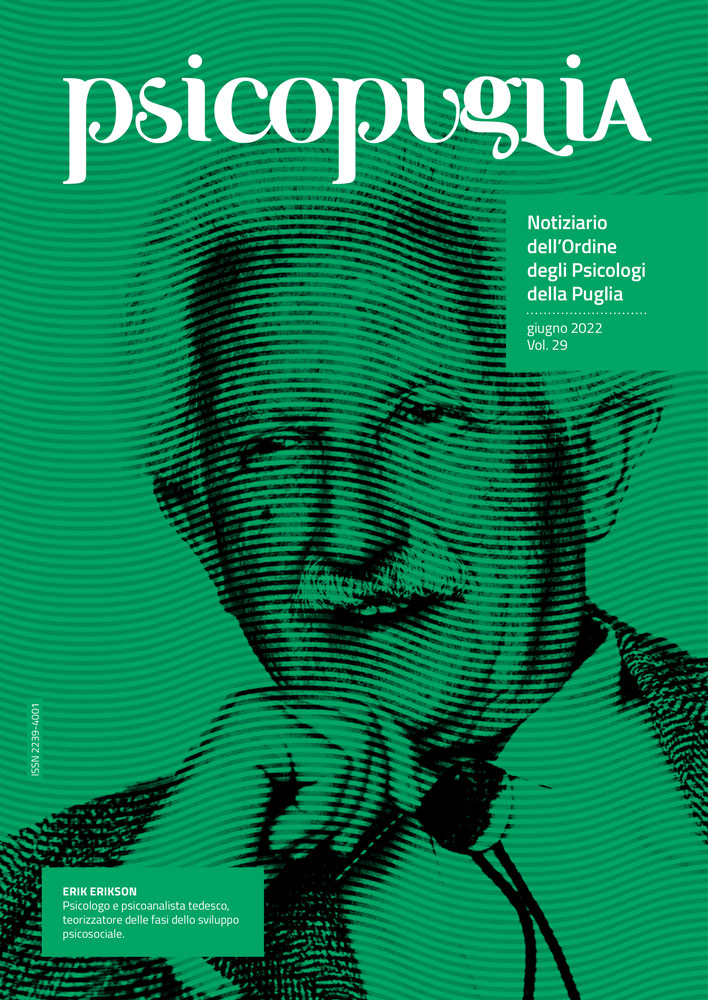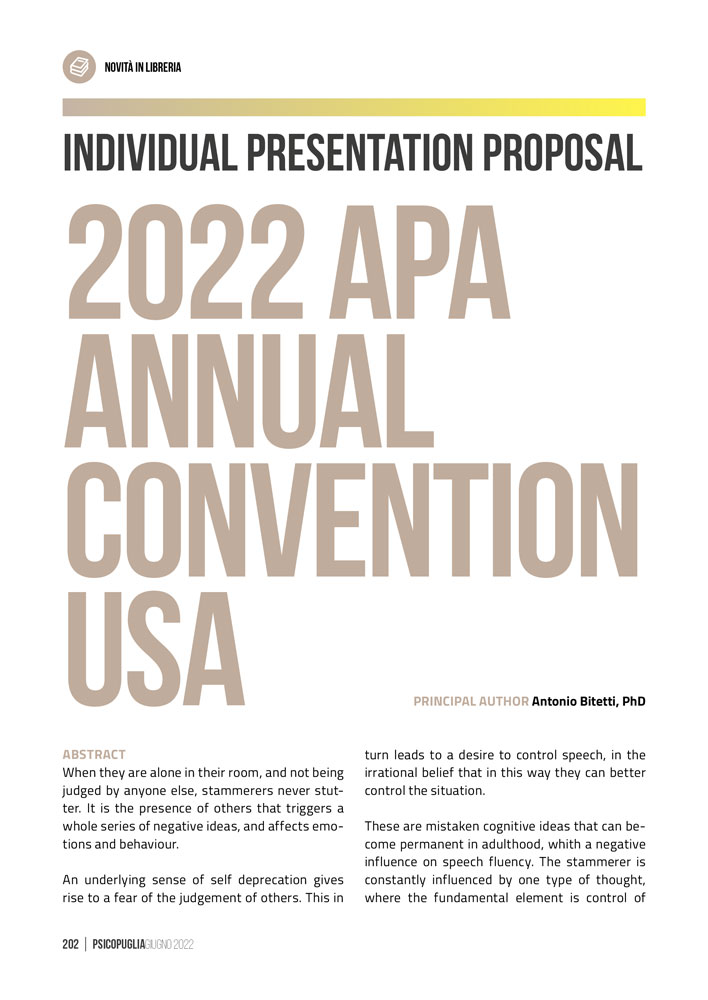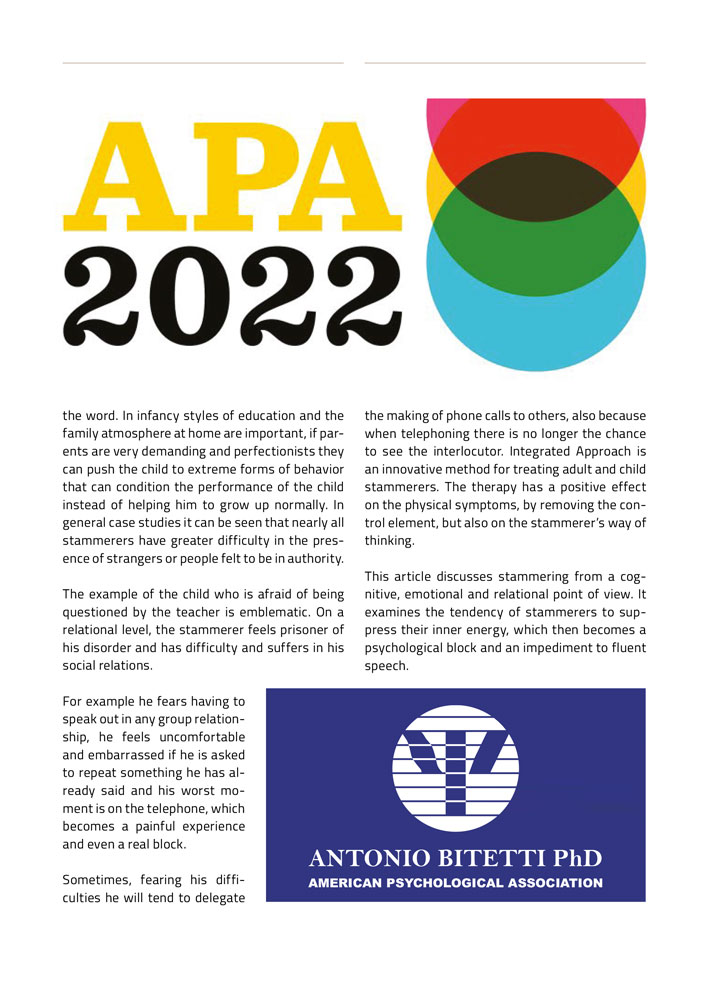2022 APA Annual Convention Minneapolis U.S.A. - 4/6 August
ABSTRACT When they are alone in their room, and not being judged by anyone else, stammerers never stutter. It is the presence of others that triggers a whole series of negative ideas, and affects emotions and behaviour. An underlying sense of self deprecation gives rise to a fear of the judgement of others. This in turn leads to a desire to control speech, in the irrational belief that in this way they can better control the situation. These are mistaken cognitive ideas that can become permanent in adulthood, whith a negative influence on speech fluency. The stammerer is constantly influenced by one type of thought, where the fundamental element is control of the word. In infancy styles of education and the family atmosphere at home are important, if parents are very demanding and perfectionists they can push the child to extreme forms of behavior that can condition the performance of the child instead of helping him to grow up normally. In general case studies it can be seen that nearly all stammerers have greater difficulty in the presence of strangers or people felt to be in authority. The example of the child who is afraid of being questioned by the teacher is emblematic. On a relational level, the stammerer feels prisoner of his disorder and has difficulty and suffers in his social relations. For example he fears having to speak out in any group relationship, he feels uncomfortable and embarrassed if he is asked to repeat something he has already said and his worst moment is on the telephone, which becomes a painful experience and even a real block. Sometimes, fearing his difficulties he will tend to delegate the making of phone calls to others, also because when telephoning there is no longer the chance to see the interlocutor. Integrated Approach is an innovative method for treating adult and child stammerers. The therapy has a positive effect on the physical symptoms, by removing the control element, but also on the stammerer’s way of thinking. This article discusses stammering from a cognitive, emotional and relational point of view. It examines the tendency of stammerers to suppress their inner energy, which then becomes a psychological block and an impediment to fluent speech.







